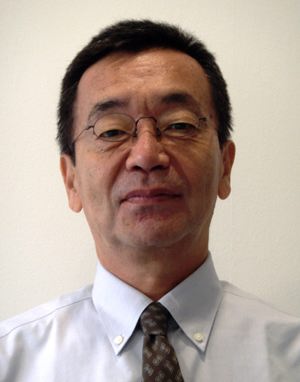Japanese service and Ukrainian logic
Osamu MIZUTANI: The most important thing is teamwork
The world is still shocked by the horrible tragedy in Japan. Den has already reported (see the issue of March 15, 2011) on the courageous behavior of the Japanese in this situation. We asked Ukrainian-Japanese Center director Osamu MIZUTANI, who has been working in Ukraine for two years, to tell us about his reaction to the tragedy, as well as that of the Ukrainians, who have gone through the Chornobyl disaster.
When and how did you come to know about what happened in Japan?
“This tragedy occurred on the Friday before last, when it was morning in Ukraine and I was at my office. My wife phoned me to say that a disaster had hit Japan. At first I could not even understand how serious and devastating it was. I learned more about it by midday. I was very shocked and depressed. I still do not have full information, but 10,000 people are still considered missing.”
In what way do you maintain communication with your relatives in Japan?
“My family lives near Tokyo, and my sister in Tokyo itself. I tried to get in touch with her via Skype but failed. I was really scared. But I managed to talk to her a few hours later. She was also scared by what had happened — especially since she lives alone. Then I received a call from one of my brothers, who lives in Toyama prefecture. He got in touch with all our relatives and told me they were all right.”
What do you think about the reaction of Ukrainians to the events in Japan?
“I have received a lot of calls and emails from Ukrainians since this tragedy occurred. They all sincerely sympathize with us over this misfortune. I am very pleased to have this kind of support.”
The media reported that there was no panic or looting after the earthquake and tsunami. How can you explain this?
“This is because we know how to tackle earthquakes. It is a Japanese custom to act in a team, in an organized way, rather than separately. The Japanese are taught this since their childhood. This applies to car making as well as farming. Teamwork rules supreme everywhere. In the case of this disaster, this kind of work will help us put the country on its feet very fast and offset the damage done. As for tsunamis, the Japanese have no experience at all as to how to tackle them…”
What are your center’s goals?
“Ukraine and Japan are far away from one another and do not know each other very well, especially Japan about Ukraine. Our center was established to exchange information, so that our peoples come to know more about each other. When this happens and people exchange information, there will be trust. And trust will in turn bring about joint business and projects, cultural exchange, etc.”
What did you associate Ukraine with before you came here?
“Briefly, I practically had no information about Ukraine before I came here. In my childhood, I mentally pictured Ukraine as a Soviet republic rich in black earth and advanced technologies.”
And has your impression of Ukraine changed now?
“I understood that Ukrainians are a nation that has gone through many things throughout its history and that they are very tolerant people. And, as long as agriculture is well developed here, the Ukrainians can also join efforts and work together.”
What is Ukraine’s image in Japan and how can we improve it?
“If you ask ordinary Japanese people which Ukrainians they know, very few will give you an answer. Yet among the young Japanese, especially soccer fans, Andrii Shevchenko is quite well known. This does not apply to Japan alone: prominent people of science, culture and sport should be well known not only in Ukraine but also abroad. As their popularity rises all over the world, Japan’s interest in Ukraine will also increase.”
What are the main differences between the Japanese and Ukrainian mentalities?
“I think the glaring difference is that the Japanese have gained more success ‘in the spirit of service.’ If you came to Japan, you would notice this at once. The Japanese are anxious to help and gladden people. This aspiration — to provide the best service possible — is typical of the Japanese. But I believe Ukrainians can think more logically than the Japanese do. This may be the result of Ukrainian education.”
What impression has Ukrainian culture made on you?
“The range of my understanding of Ukrainian culture is limited by the fact that I do not know the Ukrainian language. However, judging by what I have seen and heard, opera and ballet have really impressed me. Ukraine has achieved a great success on the whole.”






